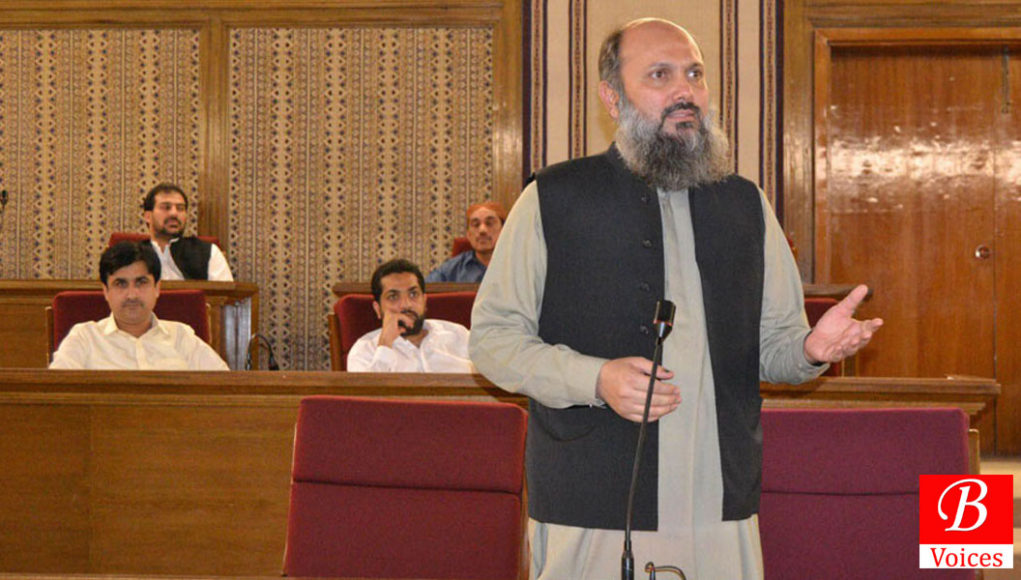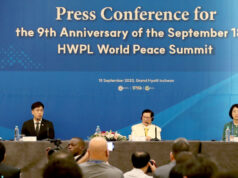Adnan Aamir
This is not Dubai. This is a gift given to the people of Quetta by the Balochistan chief minister,” wrote one cabinet member of the provincial government about the recently inaugurated Phase-I of Sabzal road in Quetta. In this phase, the government has constructed a 3.1-kilometer-long road with six lanes as well as service areas. Although this road is partially complete and a major part is still pending, the comparison with Dubai shows the desperation of the government to find success stories.
The provincial government led by Chief Minister (CM) Jam Kamal has started a social media campaign called Emerging Balochistan to highlight the good work done by the government. Phase-I of the Sabzal road was also portrayed as a part of this campaign. Based on the observation of this scribe and conversations with multiple people, the ‘Emerging Balochistan’ slogan is nothing more than a political gimmick. In reality, the people of the province continue to face many problems and the provincial government is partly responsible for them.
Starting from Gwadar, where a day before Eid, a group of women had blocked a city square in protest. In the scorching heat of the port city, which is dubbed as the center stage of CPEC, these women were protesting the lack of water supply. Water is a basic human need and the people of Gwadar still do not have that in 2021. It has been six years since CPEC was launched and even now there is no solution to this problem. The provincial government has a huge responsibility in this regard, which it has failed to fulfill.
A province where the capital city is at the risk of mass migration due to water scarcity in the near future is hardly ‘emerging’
Water scarcity is also a grave problem in Quetta, the provincial capital. A huge number of households in the city are left at the mercy of the water tanker mafia to buy water for their daily needs. The government’s own water supply system is nearly non-existent. At a time when the water table is falling in Quetta, the government is allowing unchecked mushroom growth of housing societies in the outskirts of the city. This could make Quetta unlivable after a decade or so due to the unavailability of water. A province where the capital city is at the risk of mass migration due to water scarcity in the near future is hardly ‘emerging.’
Besides water scarcity, the electricity supply is another major issue in the province and it seems that Balochistan is the biggest sufferer of electricity load shedding in the country. Most of the district headquarters only get 12 hours of electricity per day and this number falls to six hours in the villages. Even Quetta has up to 10 hours of load shedding in its outskirts. This shortage of electricity is a huge inconvenience and drastically reduces the living standard of the people of the province.
The federal government uses ‘line losses’ and ‘less billing’ to justify electricity load shedding. In reality, they are just providing excuses to hide their own incompetence and corruption. Although electricity is a federal subject and not under the control of the provincial government, it is the responsibility of the latter to persuade the federal government to resolve this problem. Therefore, a dark Balochistan with limited to no electricity cannot be ‘emerging’ by any stretch of the imagination.
Furthermore, ‘emerging’ Balochistan would imply that the government apparatus is working effectively and contributing to the improvement of the daily life of the population. However, in reality, the situation is the opposite. The government apparatus in Balochistan has completely collapsed and most departments shave become salary disbursement agencies for their employees without doing anything significant for the people of the province.
There was a shortage of petrol in Quetta days before Eid. Most fuel stations were closed and some which were open had long queues of vehicles. Many people could not drive their vehicles due to the fuel shortage caused by the manipulation of the oil supply mafia. It is the duty of the government to ensure that no station is allowed to stock up fuel to artificially create a shortage and then sell it at a higher price in the black market. This is what happened in Balochistan in the days preceding Eid.
Additionally, the Health Department – an important department for any government – has almost completely collapsed. There is not a single hospital in the entire province that provides satisfactory healthcare for a wide range of illnesses. People are compelled to visit Karachi for treatment at huge costs due to the failure of the healthcare system in Balochistan. Even private hospitals in Quetta, which charge heavy fees, do not provide quality services due to a lack of checks and balances by the government. This problem existed before this government took office, but it did not do anything significant to resolve this issue.
It is an open secret that bricks-and-mortar development is a very lucrative business in Balochistan. The reason is that many stakeholders get huge kickbacks in government construction works in the province. This system of kickbacks has eroded all development initiatives in Balochistan, promoted a culture of corrupt constituency-based politics, and raised a generation of the self-serving political elite who have captured power. Again, the provincial government has not done anything to control this problem.
This is not to say that the government has not done any positive work. However, these efforts pale in comparison to their mistakes and failures. And indeed, selling a false image of Balochistan with the tagline ‘emerging’ seems like salt on the wounds of the impoverished people of the province.
Share your comments!








